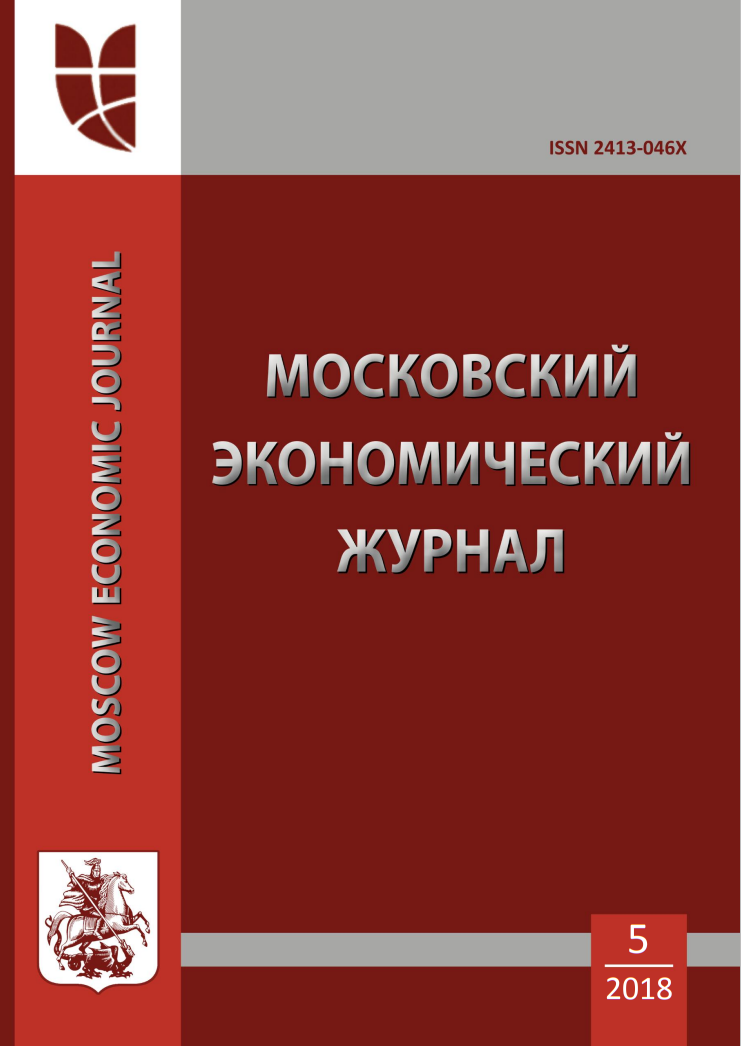Russian Federation
The paper provides an overview of the principles of the digital economy: digitized information, hypertrophied income growth, new industrial production models. The distinctive features of the concept of the digital economy from the preceding concepts have been identified, even though the previous concepts have made progress in the field of electrical engineering, energy, information technology, transport and telecommunications. The Two-Sided Markets business model with network effects is considered. In a business model, one side of the market consists of consumers who receive a service, the other side is an agent who provides services to consumers.
network economy, digital economy, two-sided markets
1. Burkal'ceva D.D., Guk O.A., Tyulin A.S. Razvitie ekonomiki na osnove ispol'zovaniya cifrovyh tehnologiy / Problemy informacionnoy bezopasnosti / Materialy IV Mezhdunarodnoy nauchno-prakticheskoy konferencii. Ministerstvo obrazovaniya i nauki Rossiyskoy Federacii; FGAOU VO «KFU im. V.I. Vernadskogo»; Institut ekonomiki i upravleniya; kafedra biznes-informatiki i matematicheskogo modelirovaniya. 2018. S. 7-9.
2. Cifrovaya ekonomika. Progra https://data-economy.ru
3. D'Souza C. et al. The digital economy //Bank of Canada Review. - 2017. - T. 2017. - №. Spring. - S. 5-18.
4. John Walker S. Big data: A revolution that will transform how we live, work, and think. - 2014.
5. Hashem I. A. T. et al. The rise of “big data” on cloud computing: Review and open research issues //Information systems. - 2015. - T. 47. - S. 98-115.
6. Athey S. The impact of machine learning on economics //The Economics of Artificial Intelligence: An Agenda. - University of Chicago Press, 2018.
7. Ashton K. et al. That ‘internet of things’ thing //RFID journal. - 2009. - T. 22. - №. 7. - S. 97-114.
8. Gubbi J. et al. Internet of Things (IoT): A vision, architectural elements, and future directions //Future generation computer systems. - 2013. - T. 29. - №. 7. - S. 1645-1660.
9. Stergiou C. et al. Secure integration of IoT and cloud computing //Future Generation Computer Systems. - 2018. - T. 78. - S. 964-975.
10. Andam Z. R. e-Commerce and e-Business. - 2014.
11. Dunbar R. I. M. et al. The structure of online social networks mirrors those in the offline world //Social Networks. - 2015. - T. 43. - S. 39-47.
12. Rochet J. C., Tirole J. Platform competition in two-sided markets //Journal of the european economic association. - 2003. - T. 1. - №. 4. - S. 990-1029.
13. Popiel P. “Boundaryless” in the creative economy: assessing freelancing on Upwork //Critical Studies in Media Communication. - 2017. - T. 34. - №. 3. - S. 220-233.
14. Mishel L. Despite Freelancers Union/Upwork claim, Freelancing is not becoming Americans’ Main Source of Income //Economic Policy Institute Briefing Paper. - 2015. - №. 415.
15. Gaspareniene L., Remeikiene R., Navickas V. The Concept of Digital Shadow Economy: Consumer's Attitude //Procedia Economics and Finance. - 2016. - T. 39. - S. 502-509.
16. Brynjolfsson E. et al. The Digital Economy, GDP and Consumer Welfare: Theory and Evidence //ESCoE Conference on Economic Measurement, Bank of England. - 2018. - S. 16-17.
17. Valenduc, Gérard ; Vendramin, Patricia. Work in the digital economy:sorting the old from the new. Working papers - European Trade-Union Institute (ETUI) ; 2016.03 (2016). - 52 s.
18. Ursul, A. D. (1975) Problema informacii v sovremennoy nauke. M. : Nauka.
19. Rochet J. C., Tirole J. Platform competition in two-sided markets //Journal of the European Economic Association. - 2003. - T. 1. - №. 4. - S. 990-1029.
20. Rochet J. C., Tirole J. Two-sided markets: a progress report //The RAND journal of economics. - 2006. - T. 37. - №. 3. - S. 645-667.
21. Eisenmann T., Parker G., Van Alstyne M. W. Strategies for two-sided markets //Harvard business review. - 2006. - T. 84. - №. 10. - S. 92.











